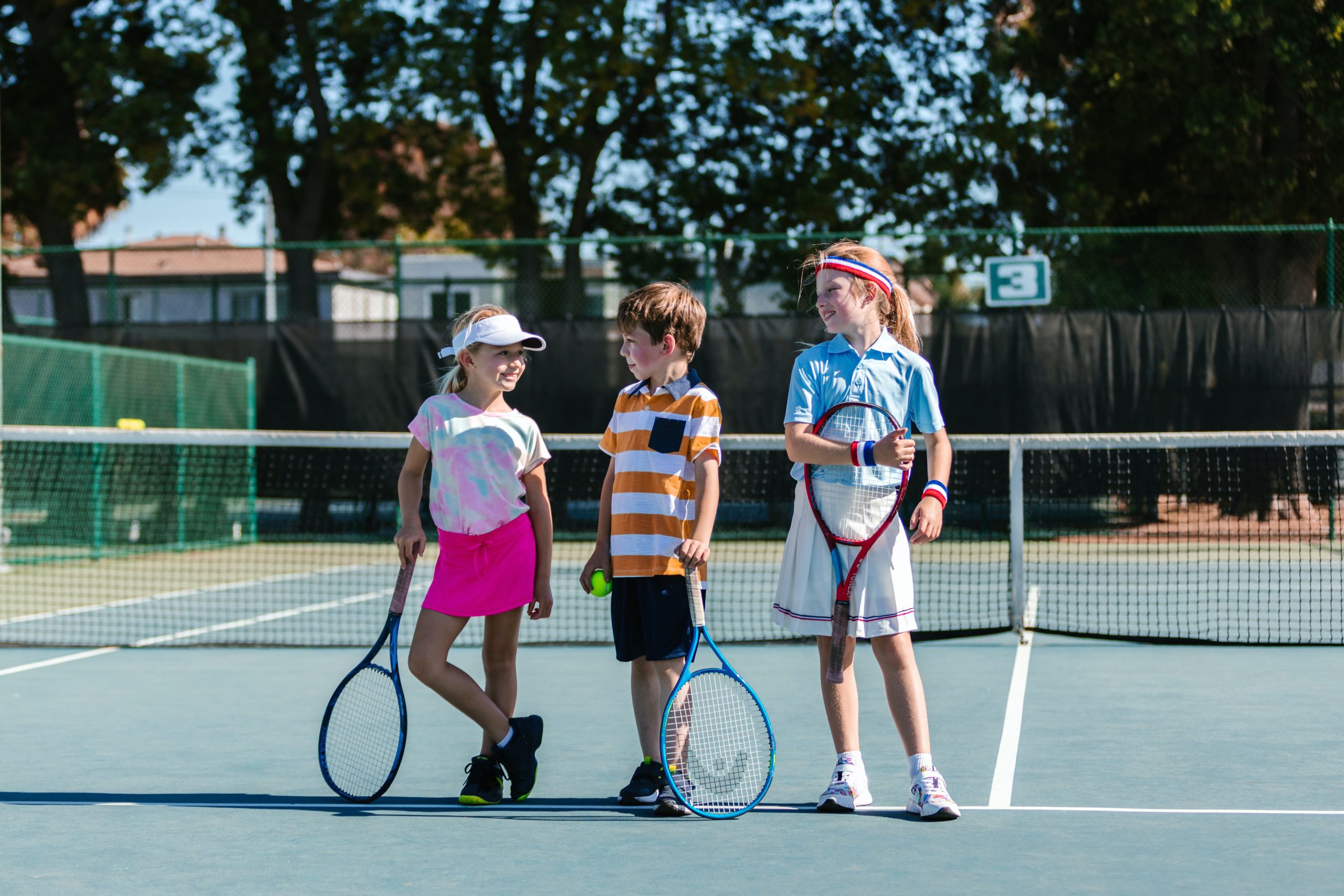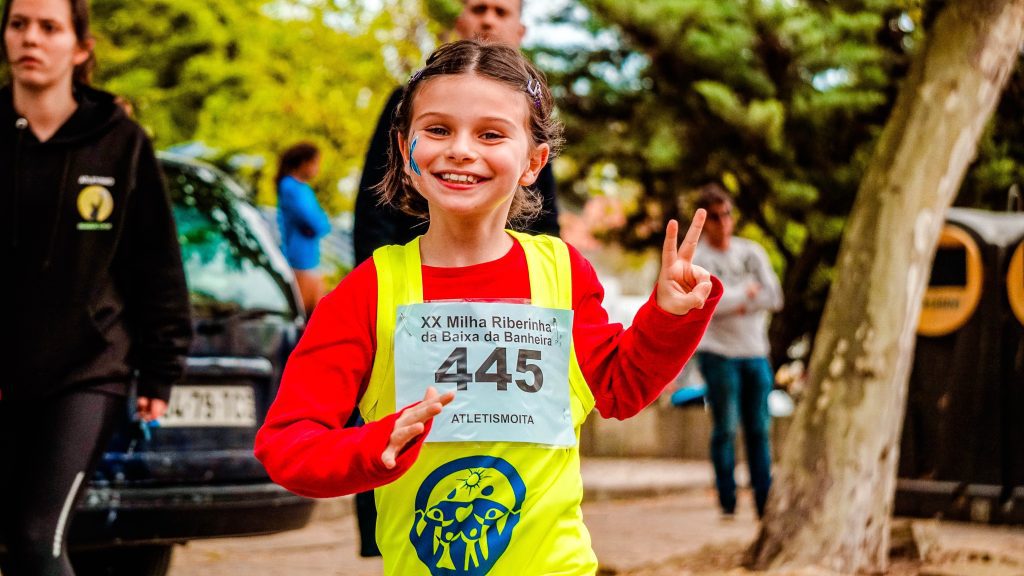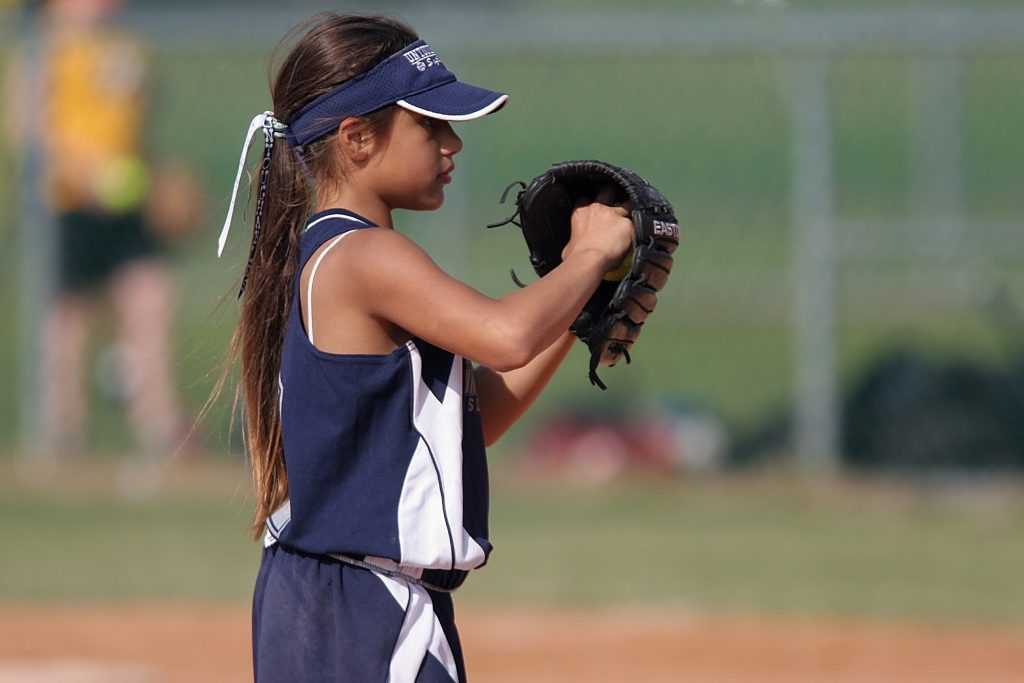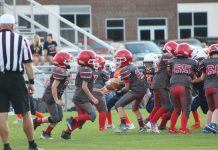 My Olympic journey began as a toddler, climbing bookshelves at an in-home daycare. The journey progressed to more organized settings like the gymnastics gym, soccer field, and eventually, the track.
My Olympic journey began as a toddler, climbing bookshelves at an in-home daycare. The journey progressed to more organized settings like the gymnastics gym, soccer field, and eventually, the track.
But contrary to popular belief, I didn’t dream the Olympic Dream from a young age. And neither did my parents.
 Youth sports are meant to encourage physical activity, build community, foster skills for self-confidence, teach life lessons, and inspire fun. Historically, youth leagues were founded to give kids the opportunity to play, but it wasn’t long before the focus centered on formal competition.
Youth sports are meant to encourage physical activity, build community, foster skills for self-confidence, teach life lessons, and inspire fun. Historically, youth leagues were founded to give kids the opportunity to play, but it wasn’t long before the focus centered on formal competition.
Today’s youth sports atmosphere is incredibly competitive.
There is immense pressure for early specialization, year-round training, and personalized coaching. Because of this, sports are becoming more expensive and some families are priced-out of playing. Whether a child specializes or drops out all together, both scenarios are detrimental to him or her. Research shows that keeping a child engaged in sports contributes to better long-term health outcomes and can reduce substance abuse in teens.
In speaking with my peers across sports, I’ve learned that most Olympic and professional athletes grow up playing multiple sports, even into high school (sans elite gymnasts). Exposure to different types of activity lends to a healthy, strong body and staves off burnout and injury. Switching sports each season keeps it fun and offers new challenges, like playing a role on a team, or handling the pressure of individual performance.
 In my own experience, I switched sports nearly every season, playing a mix of team and individual sports. This approach allowed me to progress over time and focus on the next goal in front of me. By early high school, I made some significant athletic breakthroughs, despite having no specialized coaching and no organized training regimen. With a college scholarship looming, I continued to play four sports and lead a normal high school life. I even joined the swim team for fun — an experience that greatly humbled me! (Swimming is hands down the hardest sport I’ve ever done.)
In my own experience, I switched sports nearly every season, playing a mix of team and individual sports. This approach allowed me to progress over time and focus on the next goal in front of me. By early high school, I made some significant athletic breakthroughs, despite having no specialized coaching and no organized training regimen. With a college scholarship looming, I continued to play four sports and lead a normal high school life. I even joined the swim team for fun — an experience that greatly humbled me! (Swimming is hands down the hardest sport I’ve ever done.)
Each child will take to sport differently, but participation is valuable to all. Whether your kid is the sweetest bench warmer there ever was, the super star athlete, or somewhere in between, each deserves a positive youth sports experience (and beyond).
Here are some ways you can facilitate:
Play multiple sports: Allow your child to explore their interests and encourage them to try something new, even if it means borrowing equipment to get started. As mentioned above, early specialization leads to burnout and injury and sucks the fun out of sport.
Let the coach lead: Keep your coaching advice to yourself and allow your kid to play their role on the team, whether you agree with it, or not. *Affirm coaching decisions to your child and help them reframe any disappointment. Each player has an important role to play. (*This is assuming a healthy coaching situation).
Let them fail: One of the biggest life lessons sports has to offer, yet the one parents try so hard to prevent, is that failure is an inevitable part of life. Learning to recognize shortcomings and moving forward with a positive mindset is an invaluable skill set that will echo into adulthood.
Focus on effort and fun: Win or lose, praise effort over outcome. Ask, “How do you feel it went today?” instead of inserting your own opinion. Help them learn to process their emotions and overall experience. Remind them it is a game to be played, not so much unlike a card game or backyard cornhole. Sports are meant to be fun!
Help them set goals: Helping your child identify specific skills they want to learn or how they want to improve can enhance the sporting experience. It keeps them focused on their own performance and limits the comparison game. Help them set small, measurable goals that will build confidence. This is beneficial in other areas of life as well.
Stay committed: It’s simple. Finish what you started and see the season through.
Keep it in perspective: It’s sport, not life. They aren’t just athletes, but whole human beings. Bring attention to non-physical qualities that have nothing to do with performing, competing, or winning. Think kindness, curiosity, thoughtfulness, creativity, humility, etc.
Beware of empty promises: So-called experts capitalize on youth sports by promising short-cuts to improvement. Be weary of one-off clinics and personalized training. Improvement should happen progressively over time and very few people are true expert coaches.
Forget the college scholarships: Did you know, only about 7% of high school athletes go on to play in college? And only 2% play Division I? I’m not here to crush dreams and I would never tell a kid it is impossible (it’s not)…but I will tell parents it’s unlikely.
Be physically active: Why should you expect your kids to enjoy daily exercise, if you aren’t willing to do it alongside them? Incorporate movement into your family lifestyle so they can build positive associations with physical activity and carry it forward into their teenage years and young adulthood.


















